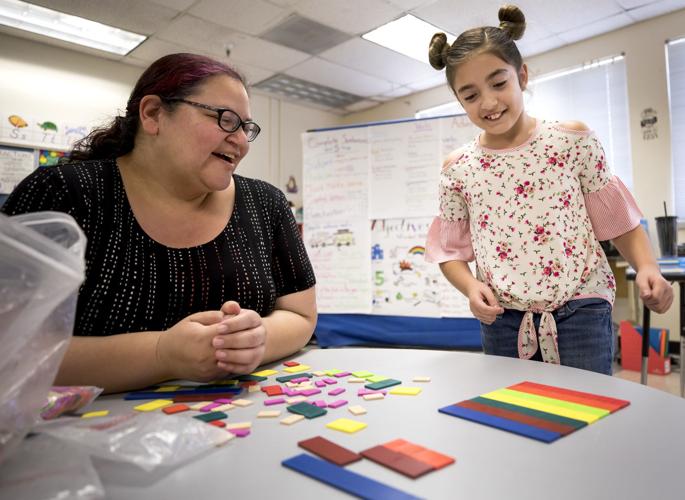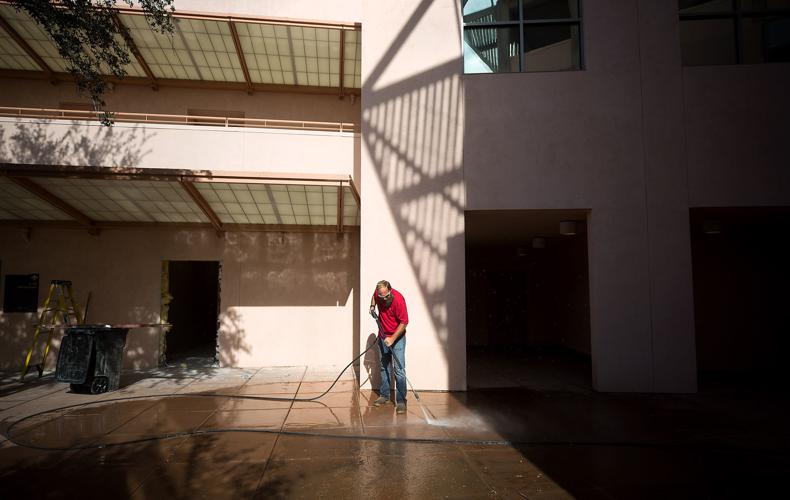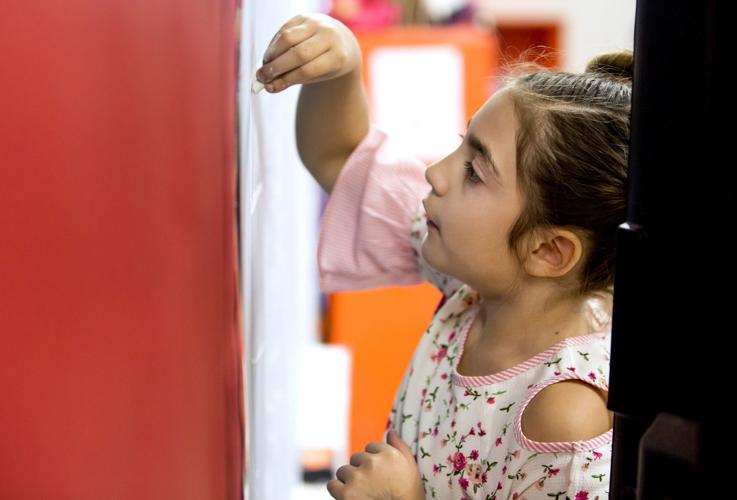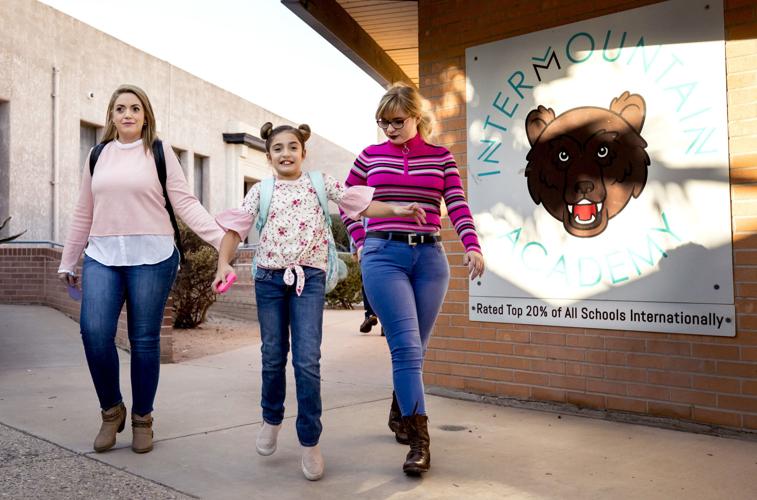Agonizing over school choices or spending hour after hour driving to appointments are among the harder aspects of raising a child with special needs.
For Tucson residents whose children have autism spectrum diagnoses, even a simple park visit can be difficult if their child tends to wander or impulsively run off, as many parks are located near roadways.
These challenges that parents and caregivers face are being taken into consideration at the new Intermountain Centers’ Integrated Care Center for Children, which is under construction now and is scheduled to open in January on Tucson’s west side.
The center, at 401 N. Bonita Ave., will include a clinic for young children with autism spectrum diagnoses, as well as health and therapeutic services for children with a wide variety of challenges.
The building, which previously belonged to Pima Community College, will also house the Intermountain Academy K-12 school for children with autism and a transition to work program for children with cognitive and developmental delays.
There will also be a diagnostic and evaluation program to help families of children with autism get answers sooner and services faster.
“If you try to get this through the state, it can take up to a year,” said Paul O’Rourke, vice president of development and communications for Intermountain Centers. “Here, it will be 45 days.”
And if Tucson’s mayor and council approve it at Tuesday’s meeting, Intermountain will also open a fenced-in family park southwest of the center. The proposed plan includes specialized play setups that encourage socializing, a music zone and statues of animals for sensory exposure.
“It will be a safe space for them,” O’Rourke said of the park. “There’s nothing like it here.”
“It was like I was stuck in time”
Tucson mother Mariela Saad moved to Tucson five years ago after her marriage to her children’s father, Mouhannad Saad, ended soon after their son was born. Saad said while her kids’ father visits regularly and supports them well, their lives, until recently, have been difficult.
Her children, now 9 and 6, have both been diagnosed with autism — her son just in the last couple of months via Intermountain — and their challenges are quite different.
Gibrael, who is the younger child, tends to run when he’s upset, while Camila is a wanderer, she said. In order to keep them safe, she installed an alarm on her door.
It’s especially scary because her daughter will talk to anyone and does not sense danger well. Her son struggles to control his temper.
Initially, her son was diagnosed with attention-deficit hyperactivity disorder and other delays, but not autism. She says she was told he was too young to check for autism, and that boys are harder to diagnose than girls.
“It was hell,” she said of that time leading up to his autism diagnosis. “I couldn’t figure out what I was going to do. It was like I was stuck in time.”
Saad said she is relieved now to have a plan in place for both kids. Her daughter already attends Intermountain Academy and her son will begin next fall.
About 200 kids wait-listed
Intermountain Centers started out as the Southwest Indian Youth Center, a program on Mount Lemmon developed by David Giles for Native American youths in the early 1970s.
When government funding for that dried up, Giles started Intermountain Centers for Human Development, which now provide a variety of services for families and children throughout the state.
The Intermountain Academy, currently at 1100 W. Fresno St., will begin offering K-12 classes at the new center on Jan. 6. The school is private, with tuition at $30,000 per year, but there are many opportunities for financial help.
O’Rourke said the school will be able to take about 130 students at the new location, but will still have a waiting list. On average, about 200 kids are waiting for a spot at any given time, he said.
The growth of the school isn’t about space, he said, but rather finding qualified teachers and teachers’ aides who are certified to teach using Applied Behavioral Analysis, a type of therapy that helps children with autism spectrum challenges.
Intermountain is a “one-of-a-kind center” and the only school for children with autism offering diagnostic services, said Brie Seward, associate director of the Autism Society of Southern Arizona.
“What is unique about Intermountain Academy is that it incorporates Applied Behavior Analysis services and a child with autism can start as early as kindergarten,” she said.
Seward said she encourages families that are waiting for a diagnosis to start therapy programs, such as occupational or speech therapy, right away. The earlier the child gets assistance, the better.
“There are still steps a family can take while they wait in order to help address their child’s developmental concerns,” she said.
“There are people out there who will understand”
Last spring, nine students were the first to graduate from Intermountain Academy, including the son of Tucson resident Eric Peterson.
That day, and the years leading up to it, included many breakthroughs for the family. Peterson said they tried to have their son attend public schools but it became increasingly difficult as he aged. By 10th grade, he was regressing and they knew they had to move him.
They visited Intermountain and were relieved to find a school that was set up to help children with autism succeed, he said. Soft lighting was one of the first things Peterson noticed.
“He was so comfortable,” he said of his son. When Peterson looks back on those early days now, he says he can hardly believe it.
“It sometimes feels like 10 years have gone by, but it’s only been three years,” he said. “When we started meeting other families, we didn’t feel so alone. You get really socially isolated.”
Peterson’s son is now attending Project Lift through Intermountain, a blend of more schooling and work which will help him transition to work.
He encourages other parents of children with similar challenges not to give up.
“There are people out there who will understand and support your kid,” he said. “They will grow, it will just be a different timeline.”







